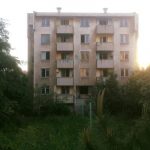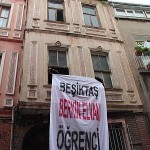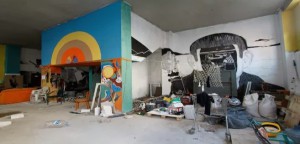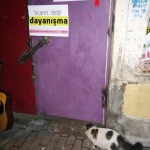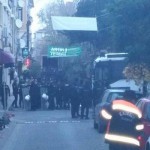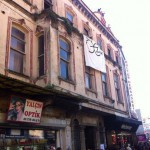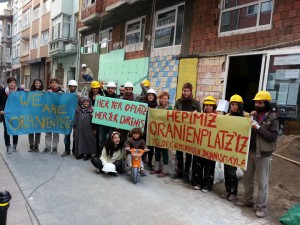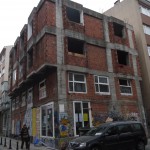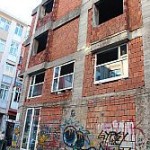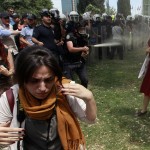– Yeldeğirmeni, Don Kişot: Began during Summer 2013. Evicted in November 2015. Torn down in November 2016. A new building rises now instead of squat.
– Kadıköy, Caferağa: Began in Autumn 2013. Evicted in December 2014. Back then, activists had organized the largest demo ever in Turkey to protest a squat eviction (https://bit.ly/2ypyMuO). Burnt down in November 2016.
– Beşiktaş, Berkin Elvan: Began in Spring 2014. Evicted in a month…
– Söğütlüçeşme, Samsa: Began in Spring 2014. Abandoned by many activists by Winter 2015. The building stands still as doors locked.
– Acıbadem, Lojman: Began in Winter 2016. Its anarchist collective has largely been dissolved by Summer 2016. As of October 2018, Lojman is still being maintained as a de-facto squat by several occupiers. Restricted access. For short stays, visits and other queries, please contact: lojman@@@riseup.net
*There are ongoing guerilla gardening (bostan) projects as well. Some of those areas are located on squatted sites like Roma Bostani in Cihangir.
